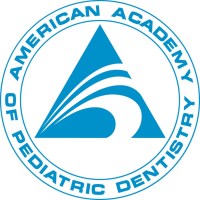When should I bring my child in for their first dental appointment?
When can I start using fluoride toothpaste?
Does my child need dental sealants?
Dental sealants are one of the most effective ways to prevent against cavities. Sealants are generally recommended for most permanent molars and also for baby molars and premolars that are at a higher risk for getting a cavity on the top, chewing surface. A sealant is a thin, protective plastic coating is bonded directly to the chewing surface of the tooth to block out cavity-causing bacteria, foods, and acids from getting into the grooves of the teeth.
When do children get their first tooth?
All babies will get their first tooth at a different age, but the average age is 6-7 months. The lower front teeth are usually the first to erupt through the gums.
When should I start brushing?
When do children lose their first tooth?
Just like with babies, all children are on their own schedule. It is most common for kids to lose their first tooth around age 6 during their kindergarten year, but a year or two early or late isn’t unheard of either.
What should I do if I a tooth gets knocked out?
First, determine if it’s a baby tooth or a permanent tooth. For permanent teeth, handle it by the crown, not by the root. Do NOT clean with soap, scrub, or handle the tooth unnecessarily. If it is sound, try to reinsert it in the socket. Have the patient hold the tooth in place by biting on gauze. If you cannot reinsert the tooth, put the tooth in a bottle of milk. If the patient is old enough, the tooth may also be carried in the patient’s mouth (beside the cheek). We will want to see you immediately. The tooth can be saved if treated soon enough. For baby teeth, give us a call, this is usually not an emergency, and in most cases, no treatment is necessary. If you have any concerns for permanent or primary teeth, give us a call or come in a see us so we can evaluate it.
How much toothpaste should I use?
According to the recommendation from the AAPD, for children younger than age three, use no more than a smear or rice-size amount of fluoridated toothpaste. For children ages 3-6, use no more than a pea-sized amount of fluoridated toothpaste. Teeth should be brushed twice a day and rinsing after brushing should be kept to a minimum or eliminated entirely.
When should I stop giving my child a pacifier?
How will I know if my child will need braces?

If you have any other questions about pediatric dentistry, please send us a question or comment below. You can also visit the AAPD for the latest recommendations and guidelines based on the best scientific research available.
Ask us a Question
We are happy to answer any pediatric dental questions.

